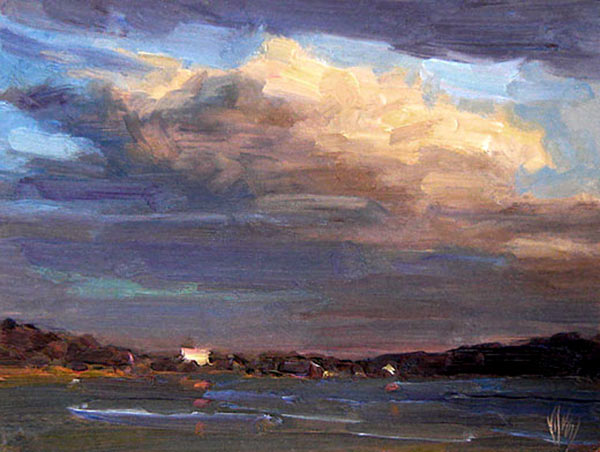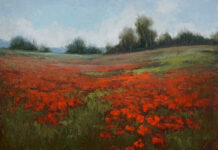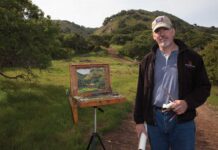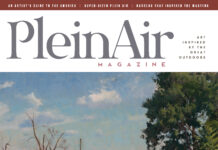John Kilroy grew up in the Boston area, and he’s familiar with its beauty. And there’s one spot that keeps pulling him in.
Lead Image: “This and the Other,” by John Kilroy, oil, 9 x 12 in.
Just 20 miles south of Boston, and just across the way from his home in Hull, Kilroy finds the quaint New England town of Cohasset, and its picturesque harbor. “There’s eye candy everywhere there,” says Kilroy. “It is situated near rolling hills, salt marshes, and amazing granite outcroppings that almost look landscaped. Every place you look, it’s absolute beauty.”
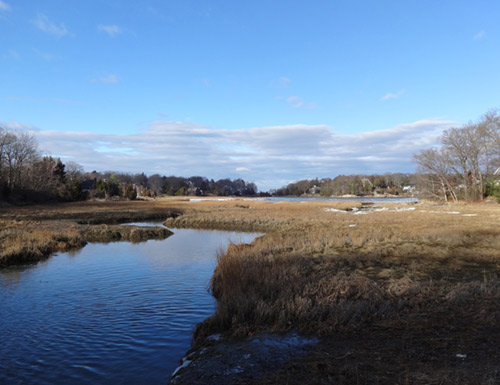
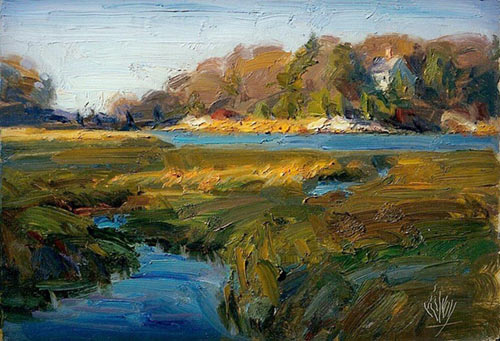
The rocks that Kilroy mentions are the edges of granite ledges that mark the coast all the way up to Maine. South of Cohasset is the beginning of Cape Cod, a finger of sand and topsoil that an ancient glacier pushed through the granite. Boston Harbor marks another gap in the granite ridge.
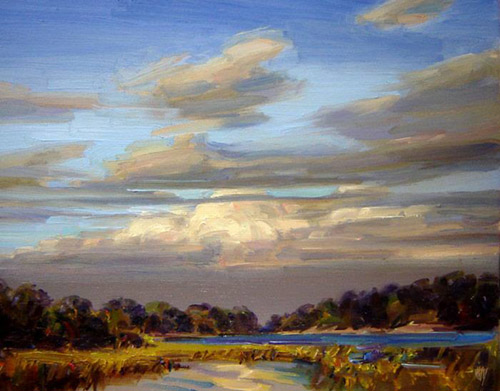
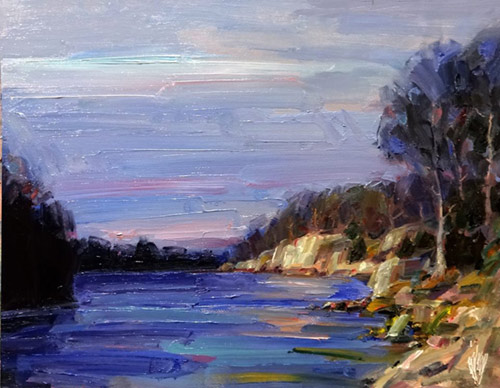
Kilroy reports that the police can take an interest in plein air painters if they aren’t familiar with the artists or if the artists aren’t keeping out of the way of ordinary activity. He knows how to stay out of trouble. The subject matter in his Cohasset paintings varies quite widely. The painter, who studied with John Asaro, says anything can inspire him, including clouds. He is attentive to the structure and direction of brushstrokes and seeks to create forms with real volume, as he sees in the work of past masters he admires—William Wendt, William F. Reese, and Hanson Puthuff among them.
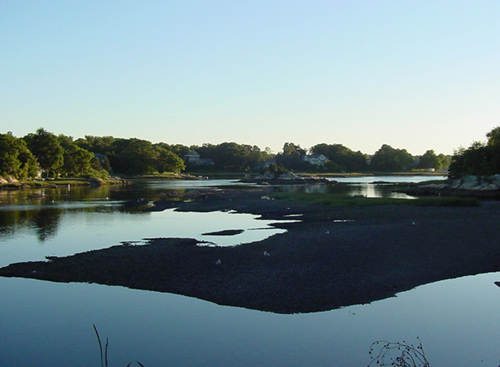
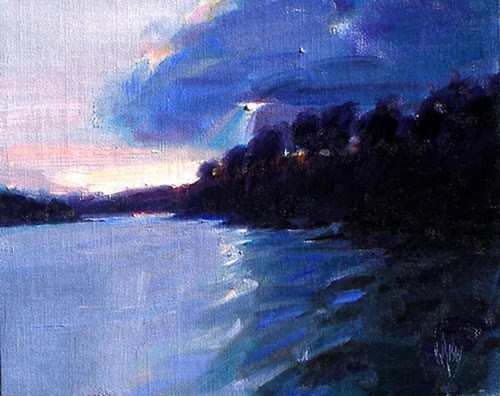
Kilroy says he drives around Cohasset nearly every day, and paints there four or five times a week. “I always keep gear in the truck so I’m ready,” says the artist. Kilroy isn’t afraid of filling a canvas, and he isn’t afraid to discard his “dogs.” He estimates that half of his output gets trashed. This is in part because Kilroy loves to take risks, always going for the big payoff. In particular, he stays open to the possibility that the light will do something interesting later in the process.
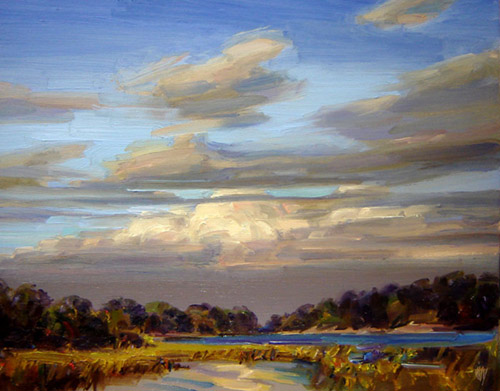
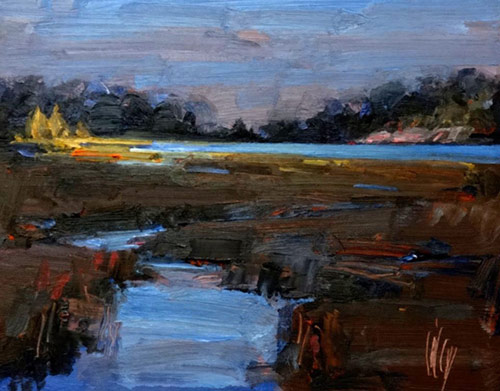
It’s a harbor, so Kilroy paints boats. But he’s usually after something much more. “I have some boat things I’ve done,” he says, “but a lot of times I am looking for the Easter egg in there. I will lock up a lot of the scene in a drawing, then take each area and put in spots to get the colors right. I love that the light might do something interesting late in the process — then I’ll try to catch it in real time at the end. That’s really exciting, that’s a gift from somewhere else. I stay open for that and leave that open in the process. A lot of times it doesn’t pan out, but when it does happen, it’s really good. Like jazz, you have to have your wits about you and try to respond to it in real time. That’s what really draws me outdoors. I do a lot of studio stuff and portraits and figure painting. But plein air has so many variables in that moment — that really keeps me excited about it.”

